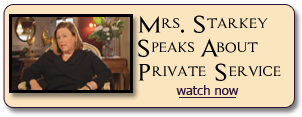
Administrative Standards for Private Service require a unique blend of knowing how your employer thinks, and their individual priorities. The wealthy matriarchs of our past taught their daughters how to set up household structures. Today’s world is much more challenging with new money having little knowledge about household employees, procedures, and understanding the required need for knowing what they want, and a specific structure for staff to meet those expectations.
There is a lack of trained professionals who understand how to set up service structures, household boundaries, fine housekeeping, private cooking and more. It’s just not the same!
Administrative Standards typically include:
- A sophisticated language and knowledge of service and how to customize and develop a written Service Management Plan.
- Experienced in Human Resources, payroll, QuickBooks, hiring practices, privacy agreements and security awareness specifically for the household industry.
The days of only needing the service of a Butler or Housekeeper to provide table service, answer the door, and accomplish fine housekeeping are over. Administrative tasks always begin with learning the Service Vision and expectations of the Principals. The Household Service Plan can only then begin to be written and developed. Day in the Life outlines from the managers pre-plan their upcoming week and provide an excellent communication tool between the Principal and their Household or Estate Manager. Standards in ten primary categories include:
- Administrative
- Housekeeping
- Culinary
- Clothing
- Entertaining
- Property and Grounds
- Maintenance
- Transportation and Travel
- Safety and Protection
- Personal Care
Starkey has found that these categories of Standards are active in all service environments and must be identified. Private Chefs should develop weekly menus to organize food purchasing and entertaining. Starkey developed and patented its Service Management System over 15 years ago that accomplishes the identification of these tasks.
Starkey has learned that unless this information is quickly gathered from the Principals, the home or estate will soon begin to feel like what staff would prefer in their own homes. Administrative Standards also include setting up the home or estate to support household staff. Starkey calls this the “Service Flow” within a home and outlines the needs of your household staff in great detail. Imagine showing up to a Household Management position and learning that no one has considered that they might need office space and essentials to accomplish the above tasks.
Private homes and estates are supervised and run cooperatively by the family, the Family Office, and the private service managers. Private Homes are much like a small office with several persons wearing more than one hat and accomplishing many tasks. This is why position descriptions, Day in the Life duties, Zoning and Task Sheets, excellent communication practices and the identified Service Standards all come into play and are all written for clarity.
Administrative Standards vary from home to home, but as additional homes and properties are purchased, expanded or remodeled, each must be run in accordance with the family’s service expectations. Starkey Graduates are positioned to last many years with their Principals as new children are born, go off to college, and as Principals eventually downsize their holdings to experience new lifestyles. In addition, family foundations are formed that support the community, and when special projects are identified to be accomplished, administrative tasks become essential to the overall well-run home or estate.
- Basic accounting procedures and what is expected from the Private Service Staff pertaining to household finances.
- Care of collectibles, insurance coverage, and required comprehensive inventory.
- Genuine people management skills with proven communication and leadership skills.
- Overall concierge services, commercial and private travel, and the development of lifestyle resources for the family.
- Working with family offices, non-profits and foundations
- Excellent abilities with a variety of today’s technology including calendars, Microsoft Office, smart home technology, security systems and more.
With children and pets underfoot, it may be difficult to maintain safety. Starkey often looks at the location and size of laundry rooms for accomplishing ironing, folding, and laundering clothing. If the bedrooms are on the 3rd floor, and the laundry room is in the basement or very small, it will not support this laundress in feeling good about her work or accomplishing her required tasks.
Finally, we would like to emphasize that all businesses, including Household Management, must have three elements of planning to be successful.
- It must begin with an overall Service Vision that identifies priorities and service expectations.
- It must have a unique Service Management language to speak clearly and communicate what is needed.
- All Certified Household and Estate Managers must have use of management tools specific to Household Management to communicate to a Principal in one page reports, how they will develop and manage their service plan including the number of required staff, their abilities, work schedules, and the Service Standards they will be delivering. This is the administrative work and ongoing planning required to succeed in today’s world of a Certified Household or Estate Manager. It takes great professional discipline to work consistently on another’s agenda, and is the true artistry of Private Service.
Mary Louise Starkey
First Lady of Service
Starkey International Institute, Inc.


